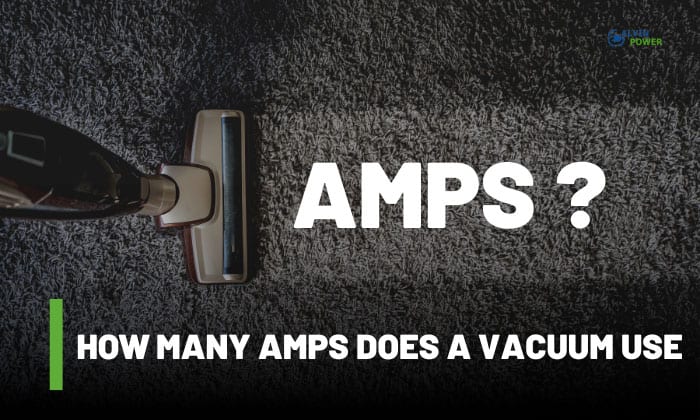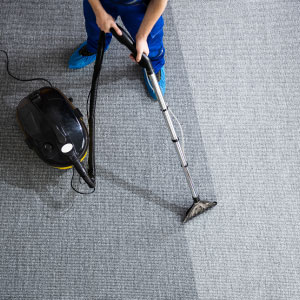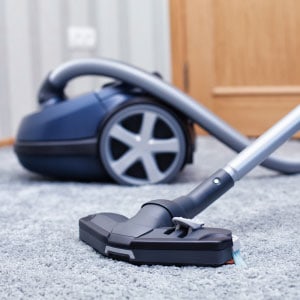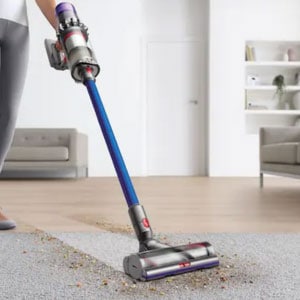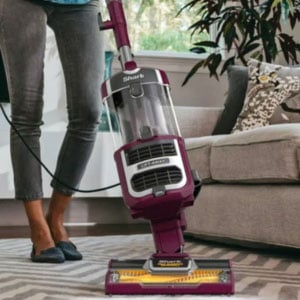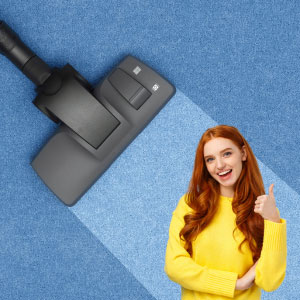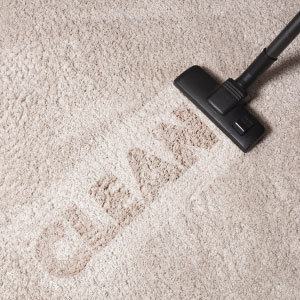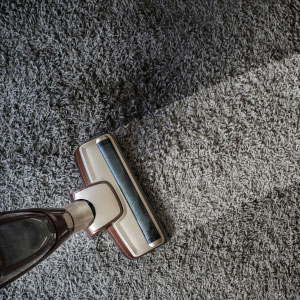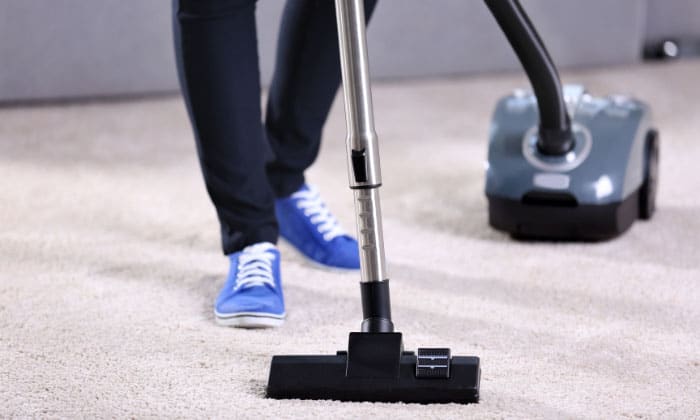Vacuum cleaning is essential to maintaining a pristine, tidy living space. However, did you ever consider how many amps does a vacuum use?
A vacuum cleaner may use as much as up to 12 amps of current, depending on its type and feature. The current ratings can also affect a vacuum unit’s performance. Let’s explore more about vacuum cleaners and discuss some well-known brands below.
Table of Contents
Understanding Vacuum Cleaner Amps and Watts
Making intelligent decisions about the safety and efficiency of a vacuum unit is much easier if you know their amps and watts ratings. However, the amps and watts may vary depending on the specific model and motor size. In this case, it is better if we talk about them briefly.
How Many Amps and Watts Does a Vacuum Use?
1. Vacuum Amps
The vacuum cleaner amp draw refers to the amount of current the device requires from the power source. Most household vacuum cleaners draw 8 amps of current, while an upright vacuum may draw as much as 12 amps. In general, the higher the amp rating, the more powerful the suction and cleaning ability of the vacuum.
However, it’s important to keep in mind that a higher amp rating also means greater energy consumption, which can result in higher electricity costs. Therefore, understanding vacuum cleaner amperage rating is essential for your cleaning needs while considering the expense of your electrical bills.
2. Vacuum Cleaner Wattage
The watt rating of a vacuum cleaner refers to the amount of electrical power it consumes while in use. So, how many watts does a vacuum use?
Most household vacuum cleaners with 1400 watts consume 2.80 kWh for two hours of usage daily. This may add up to $14 to your utility bill if electricity costs 0.16 dollar per kWh.
At the same time, an upright vacuum with 3000 watts or more may consume more than 6 kWh for two hours of use daily. This may add more than $29 to your utility bill.
Higher wattage also means higher energy consumption and greater electricity costs. Therefore, choosing energy star vacuums may be helpful to lessen your utility bill.
The Highest Amp Rating Depending on Each Brand
When talking about the highest amp vacuum rating, it may depend on the specific models from different manufacturers. Nowadays, Dyson and Shark are two of the most reputable vacuum brands in the market. Let us know more about them.
1. Dyson Vacuum
Dyson vacuum cleaners are known for their power and efficiency. Typically, Dyson vacuum wattage usually ranges from 500 up to 1500 watts of power. With this power rating, it can draw as much as 12 amps of current.
As a result, a 15-amp circuit is enough to supply current for Dyson 12 amp vacuums. However, because it maximizes the safe current draw of a 15-amp circuit, you may be unable to use other electronics on the same circuit.
Furthermore, due to the power and efficiency offered by a Dyson vacuum cleaner, it also comes at a steep price.
2. Shark Vacuum
Like the Dyson, Shark vacuum cleaners are also one of the most popular brands. Some of their high-powered vacuums have a maximum of 1200 watts. These units may draw a total current of up to 10 amps.
Even though a Shark vacuum may use less power than Dyson, it still provides efficient suction and cleaning capabilities. What’s attractive about it is that most Shark vacuums come cheaply.
Ways to Decrease Vacuum’s Electrical Usage
1. Choose an Effective Vacuum Cleaner.
Choose an effective vacuum cleaner that meets your needs while hunting for an efficient one. The newer models typically have better features and are significantly more energy-efficient.
However, if you want to compare products, you can think about finding a vacuum suction power chart to see what will work best. Interestingly, motor wattage matters less than suction capacity (measured in Pa) and air flow (liters per second) when it comes to cleaning ability.
The latter two units combine to form the suction power, which is often 250 to 450 watts.
Also, keep in mind that the noise level may increase with vacuum cleaner power. Consequently, a bigger machine might not be beneficial for all of us.
2. Clean or Replace the Filters Regularly.
Dirty filters can limit suction power, putting additional strain on the vacuum motor and increasing energy usage. To maintain peak performance, clean or replace the filters, including the motor filters, following the manufacturer’s instructions.
3. Vacuum More Efficiently.
Consider your vacuuming methods and strive to vacuum more effectively by only going over each area once and avoiding cleaning the same spot needlessly. This may lessen the quantity of energy required to do the cleaning job.
Read more:
- How Many Amps Does a TV Pull
- How to Calculate Microwave Amp Usage?
- The Average Amps Drawn by Coffee Makers
Frequently Asked Questions
Can You Use a Shop Vac for Cleaning Regularly?
Yes, shop vac use includes house cleaning. However, it might be hard to utilize in confined spaces, such as while navigating carpets and floors.
What is a Central Vac?
A central vacuum is a specific kind of vacuum cleaner system that is intended to be permanently installed in a house or other structures.
In contrast with traditional portable vacuums, central vacuums feature a central power unit connected to a system of pipes and tubing that is installed in the building’s walls and floors.
They use 10 to 13 amps on average.
Is a Wet Dry Vac Worth it?
Depending on your particular requirements and usage, a wet-dry vacuum may be worthwhile. It’s perfect for cleaning up disasters like spilled beverages, sawdust, or construction waste because it can manage both wet and dry debris.
Conclusion
Understanding how many amps does a vacuum use is crucial when looking for a powerful and resource-conserving device. Vacuums with more amps and wattages typically cost more energy.
However, you don’t necessarily need to spend a lot of money to have a powerful unit that uses less electricity. Instead, using a vacuum specific to your personal cleaning requirements and using the above strategies to save energy will help keep your home clean more efficiently.

I am Edwin Jones, in charge of designing content for Galvinpower. I aspire to use my experiences in marketing to create reliable and necessary information to help our readers. It has been fun to work with Andrew and apply his incredible knowledge to our content.

